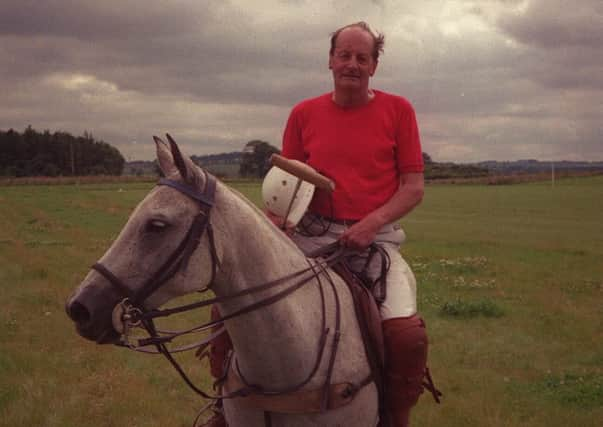Obituary: John Douglas, 21st Earl of Morton


The Douglas family, Earls of Morton, are one of the most ancient families in Scotland and connected with former kings of Scotland and other nobility – James Douglas served as Regent of Scotland in the 15th century. The family dates from the 12th century when Sir James Douglas, 1st Lord Dalkeith, was granted a charter of the Barony of Morton, a small holding in East Calder.
The 21st Earl of Morton was a colourful character who showed a shrewd business acumen and served the community of West Lothian in many ways – notably as an outstanding Lord Lieutenant for the county. He had a natural ability to speak to all present at formal gatherings in a relaxing and courteous manner. Morton also had the knack of calming down those who were nervous of their extra special duties at all formal occasions.
Advertisement
Hide AdAdvertisement
Hide AdHe proved an able farmer and cattle breeder, owning land both in Scotland and England: in the latter his farm in Wiltshire was particularly innovative after he founded his own livestock company. He was a great and ebullient enthusiast who embraced many aspects of life in his career: entrepreneur, farmer, cattle dealer, polo player and a loving family man.
John Charles Sholto Douglas succeeded his cousin and became the 21st earl in 1976. He was head of the Douglas family and petitioned the Lord Lyon King of Arms for the title of Chief of Douglas. He was the son of the Hon Charles William Sholto Douglas and Florence Timson, and initially attended a prep school in Badminton, Wiltshire before going on to two public schools (Canford and then Bryanston) neither of which he fitted into with ease.
He was much happier and better suited to Malmesbury Secondary School in Wiltshire, where the headmaster sent him off with a glowing report: “Douglas, we are sure that you will do well in life.”
His formal education ended when he was 17 and within three years he had built up a transport business which gave him the time and funds to study veterinary science in Edinburgh and set up as a Wiltshire farmer with his own livestock company, trading with particular success in Ireland. So began his life-long interest in breeding cattle and farming. This expanded when he bought his cousin’s land at Dalmahoy in 1968. In fact, Morton was to serve as senior partner of Dalmahoy Farms and Chairman Dalmahoy Country Club.
The Dalmahoy Estate has long been owned by the Douglas family and they had acquired the house from the Dalrymples around 1760. The heraldic emblazonments of both the families can be seen today on the walls of the house.
He was a keen swimmer and also had a life-long passion for polo and played for Scotland in 1977 and 1979 in Kenya. In 1970, thanks to Morton’s energy and initiative, polo returned to Scotland and matches were played on his Dalmahoy estate. His enthusiasm for the sport made it a popular hobby and he was keen to kill the misconception that it was elitist. He often said: “In Scotland it’s much more casual; people from all walks of life play the game.” Morton loved the atmosphere of a polo match and was active with the Edinburgh Polo Club for many years.
From 1976 Morton served as a crossbench peer in the House of Lords and spoke on many social matters concerning Scotland – notably the state of the prisons.
His duties as Lord Lieutenant were despatched with much energy and style – it was a position he filled with much dignity from 1985 to 2001.
Advertisement
Hide AdAdvertisement
Hide AdIn 2005, he unveiled the newly-repaired Morton Monument at St Nicholas Buccleuch Church, Dalkeith. The 16th century figures had been carefully restored and looked magnificent. Morton said at the ceremony: “I think this has been a great achievement for all the people concerned in putting this together. It is a great achievement for the people of Dalkeith.”
Morton also served on the board of Quickwing Ltd and the Scottish board of the Bristol and West Building Society.
He was also proud to further the Douglas clan – often wearing a dinner jacket made in their purple and green tartan.
He married Sheila Gibbs, a member of the McCorquodale family in 1949. She and their daughter and two sons survive him. The oldest son, John Stewart Sholto Douglas, formerly Lord Aberdour, becomes the 22nd Earl of Morton.